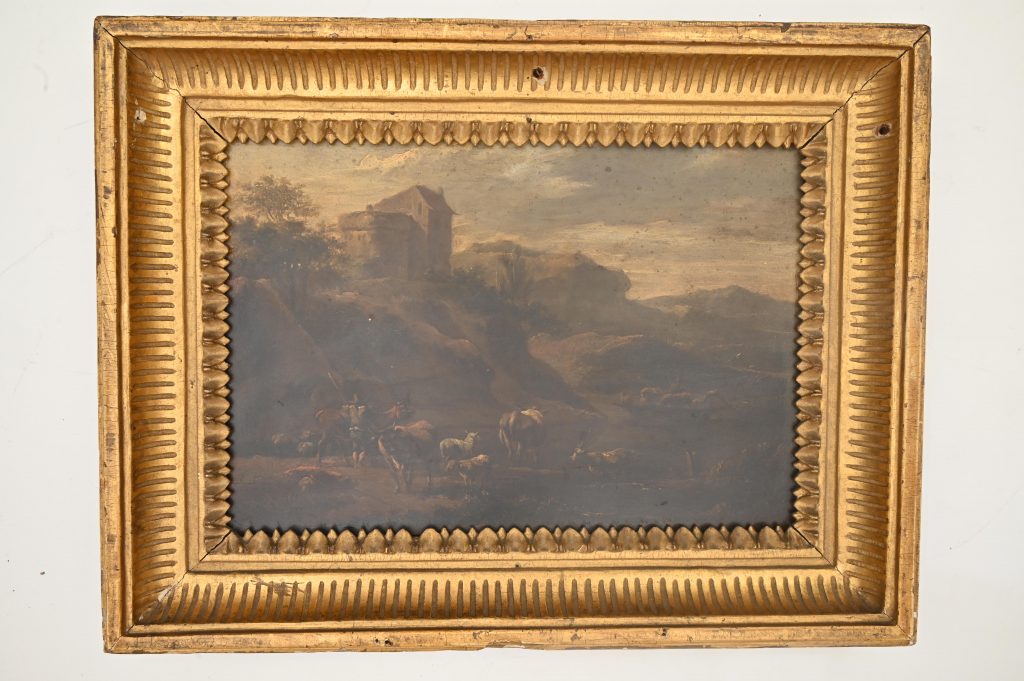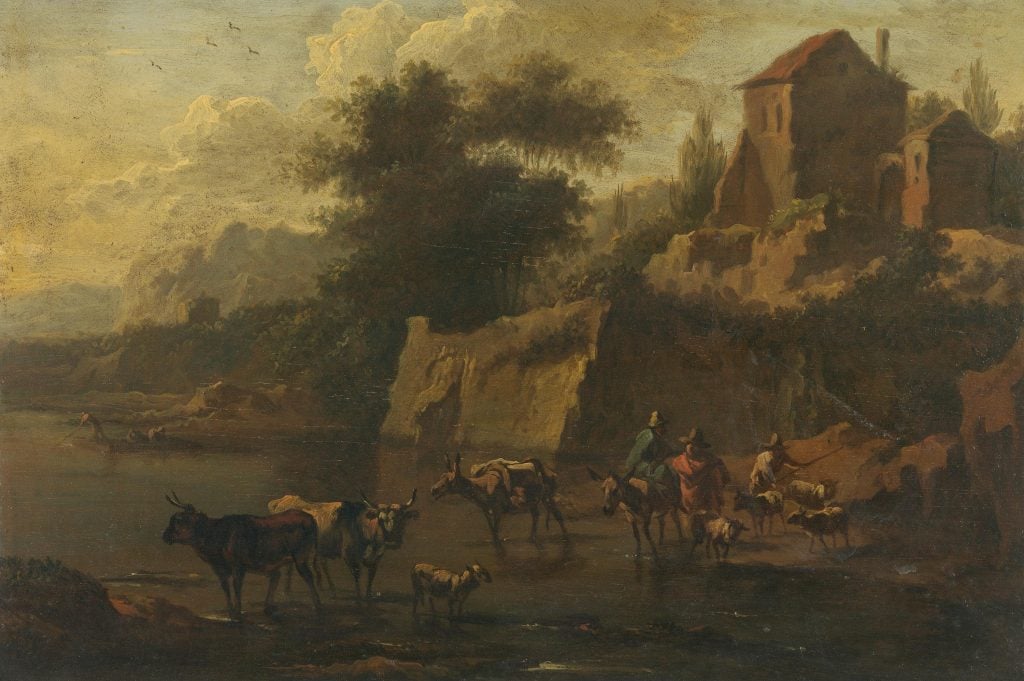Crime
After 80 Years, a Long-Lost Painting Looted by U.S. Soldiers During World War II Has Been Returned to Germany
An anonymous tipster called Art Recovery International to admit their uncle had stolen the painting from a German museum.

An anonymous tipster called Art Recovery International to admit their uncle had stolen the painting from a German museum.

Sarah Cascone

Christopher Marinello, a lawyer and the founder of Art Recovery International, has spent years securing the restitution of important artworks looted by Nazis during World War II. But his latest success story involves a painting by Viennese artist Johann Franz Nepomuk Lauterer that was stolen by a U.S. Army soldier and returned to Germany nearly 80 years later with assistance from the FBI Art Crime Team.
“On occasion, we come across cases, such as this, where Allied soldiers may have taken objects home as souvenirs or as trophies of war,” Marinello said in a statement. “Being on the winning side doesn’t make it right. We expect everyone to do the right thing and return stolen artwork wherever it may be located.”
The wood panel painting, titled Landscape of Italian Character, was reported stolen from the Bavarian State Painting Collections in Munich after the war, and hadn’t been seen since 1945. Then, last December, Art Recovery International got a tip from someone in Chicago who claimed their uncle had served in the war, and brought back a “stolen or looted painting.”
With nothing to go on other than photographs of the work, Marinello and his team set about trying to identify the piece’s title, artist, and rightful owner. With help from the German law firm Wantuch Thole Volhard, they were able to track the lost work to the New Bayreuth Palace, part of the Bavarian State Painting Collections.

Identifying labels on the back of Johann Franz Nepomuk Lauterer’s Landscape of Italian Character, stolen from the Bavarian State Painting Collections during World War II. Photo courtesy of FBI Chicago.
Getting the painting safely back to Germany was more of a challenge, as the tipster, who remains anonymous, initially wanted a monetary reward for its return.
“I explained our policy of not paying for stolen artwork and that the request was inappropriate given the familial connection,” Marinello added.
He was worried, because someone in Chicago had tried to sell the painting back to the museum in 2011, only to disappear when the institution balked at payment. (In 2012, the museum, which had been searching unsuccessfully for the work since 1965, added the Baroque painting to Germany’s Lost Art Database for cultural property that went missing during Nazi rule.) Eventually, Marinello convinced the tipster to agree to an unconditional return of the work.
The FBI Art Crime Team stepped in to oversee the handover from the possessor, and Bernd Ebert, chief curator of Dutch and German Baroque paintings Alte Pinakothek (part of the Bavarian State Painting Collections) flew to Chicago for a restitution ceremony at the German Consulate on October 19.
Securing the stolen painting’s return “is actually a very rare moment for us,” Ebert told the Associated Press. “It’s exciting.”

Johann Franz Nepomuk Lauterer, Italian Landscape. Collection of the Bavarian State Painting Collections, Alte Pinakothek, Munich.
It’s “not only an act of historical justice, but also an expression of the appreciation of our cultural heritage,” Markus Blume, the Bavarian culture minister, told the Art Newspaper.
Once the work is safely back in Munich and undergoes restoration, the museum plans to put it back on view with its counterpart, another Lauterer landscape featuring shepherds, their animals, and travelers crossing a river.
The two works originally came from Neustift Monastery near Freising, and had been part of the state collection since the 19th century. From 1924 to 1939, when the paintings were evacuated for safekeeping during the war, the pair hung together at New Bayreuth Palace. The Alte Pinakothek also owns a quartet of Lauterer canvases that have recently been restored, and hopes to show all six of its works by the artist together in the near future.